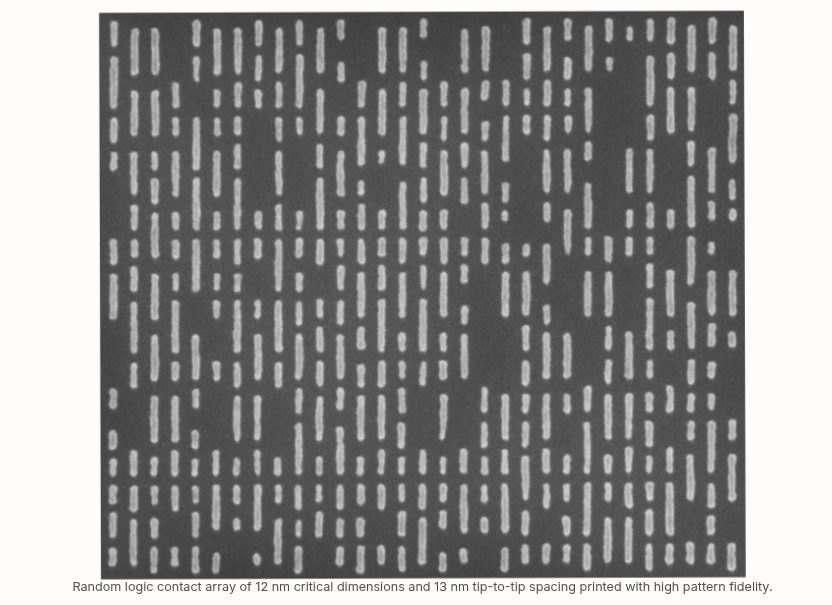 INFRA
INFRA
 INFRA
INFRA
 INFRA
INFRA
An extremely ambitious startup called Substrate Inc. said today it has raised an initial $100 million to fund its mission to disrupt the global semiconductor industry and reinvent chipmaking.
The company is being backed by high-profile investors including Peter Thiel’s Founders Fund, General Catalyst, Allen & Co, Long Journey Ventures, Valor Equity Partners and In-Q-Tel, a nonprofit run by the U.S. government that funds new technologies for the defense and intelligence industries. The round values the startup at $1 billion.
San Francisco-based Substrate ultimately wants to manufacture its own advanced computer processors from scratch, with plans for the entire process to take place on American soil. But to kick things off, it’s focusing on a very specific and critical aspect of chipmaking, developing a new kind of machine that can compete with the most advanced lithography tools made by the Dutch company ASML Holding N.V.
In an interview with the Wall Street Journal, Substrate co-founder and Chief Executive James Proud, who is a protégé of investor Thiel, said the company’s lithography process can dramatically slash the cost of the advanced machinery required.
Proud is trying to do what many in the industry will say is impossible, for the engineering feats required to match ASML have eluded some of the world’s biggest companies. At present, ASML is the world’s sole supplier of extreme ultraviolet lithography machines, which are used to etch intricate, microscopic patterns onto silicon wafers at rapid speeds to develop the most advanced processors sold today.
According to Proud, Substrate’s tool relies on X-ray light to etch the patterns onto silicon, and can print features at similar resolutions to the most advanced machines sold by ASML, which cost around $400 million each.
Substrate has already demonstrated its technology at the U.S. National Laboratories and at its own facilities in San Francisco, and offered some high-resolution images that show what it can do.

Experts told the Journal that the images are impressive, but questions remain about Substrate’s ability to print at the scale required for the mass production of chips. Indeed, many are extremely dubious about the company’s plans, noting that it would need to maintain the same accuracy shown in the images over much larger areas of the silicon wafers and run at incredibly fast speeds. Chinese companies have been trying for years to match ASML’s capabilities, but have not yet succeeded despite spending billions of dollars on research.
Stephen Streiffer, a director at Oak Ridge National Laboratory who is an expert on high-energy x-ray beams, told Reuters he was optimistic about Substrate’s technology, and said it’s giving the U.S. an opportunity to recapture the semiconductor market. “It’s a nationally important effort and they know what they’re doing,” he said of the company.
Substrate’s ambitions have gotten the attention of President Donald Trump’s administration, which views the country’s reliance on overseas suppliers for computer chips as one of its most alarming national security risks. If Substrate can succeed in its goals of bringing chipmaking back to the U.S., it would have enormous economic and national security implications. Trump himself has repeatedly stressed the need for the country to reclaim its chipmaking prowess. He recently instructed the government to buy a stake in Intel Corp., which once led the industry but has since fallen behind Taiwan Semiconductor Manufacturing Co., the world’s top chipmaker.
Substrate is building a next-generation foundry to return America to dominance in semiconductor production. To achieve this, we will use our technology—a new form of advanced X-ray lithography—to power them.
America invented semiconductors. We will lead again. pic.twitter.com/1rgnWSYYZG
— Substrate (@substrate) October 28, 2025
However, even if Substrate does succeed, it seems unlikely it will be able to do so in the three-year timeframe that Proud said is needed for it to produce its first processors.
Building an advanced EUV lithography machine is just one aspect. It also needs to recreate an extremely complex and capital-intensive semiconductor supply chain, which will require it to develop an advanced chipmaking process that could rival TSMC’s two-nanometer technology that’s set to go online later this year. But TSMC has spent billions of dollars and taken several decades to get this far, and rivals such as Intel and Samsung Electronics Co. Ltd. have been unable to match its progress, despite spending billions of their own. An advanced chipmaking fab today costs about $15 billion to construct, and it must also be staffed by hundreds of people with specialized expertise.
Proud told the Journal that he knows many people will think his company’s ambitions are implausible. “If I had come from the existing industry, I probably wouldn’t believe it’s possible because I’d probably know too much about how hard it’s going to be, and it was and it has been immensely hard,” he said.
What he proposes is to create a vertically integrated chipmaking supply chain, with his company owning the entire process. That’s the opposite of how the industry works today, with ASML providing the machines, TSMC supplying the manufacturing expertise, the likes of Nvidia Corp. doing the designs, and various other companies involved in other aspects.
Most industry experts believe that vertical integration is not sustainable in an industry that has such intensive capital needs, but Proud believes Sustrate can reduce costs significantly by making the tooling it needs in-house and by using less expensive processes. He said the company’s lithography process does away with the need for multi-patterning, where repeated exposures are used to etch smaller features on the silicon wafers.
General Catalyst Managing Director Paul Kwan told the Journal that Proud’s bold plans are not entirely unrealistic. “The only way to fix this game is to take a completely different approach, take a blank slate,” he said. “That is how you can get over the audacity and insanity of it all.”
Support our mission to keep content open and free by engaging with theCUBE community. Join theCUBE’s Alumni Trust Network, where technology leaders connect, share intelligence and create opportunities.
Founded by tech visionaries John Furrier and Dave Vellante, SiliconANGLE Media has built a dynamic ecosystem of industry-leading digital media brands that reach 15+ million elite tech professionals. Our new proprietary theCUBE AI Video Cloud is breaking ground in audience interaction, leveraging theCUBEai.com neural network to help technology companies make data-driven decisions and stay at the forefront of industry conversations.